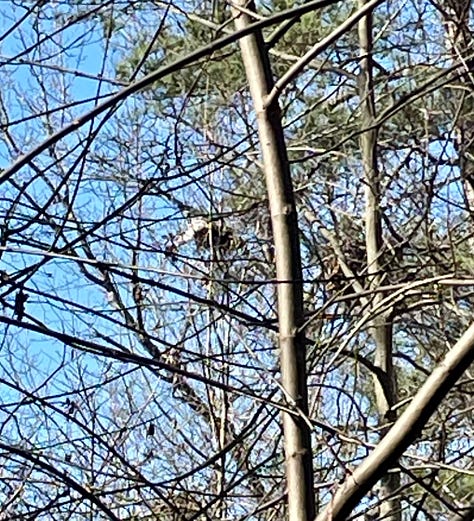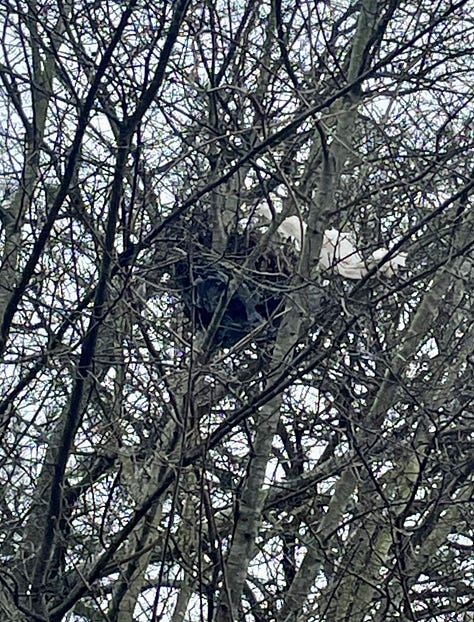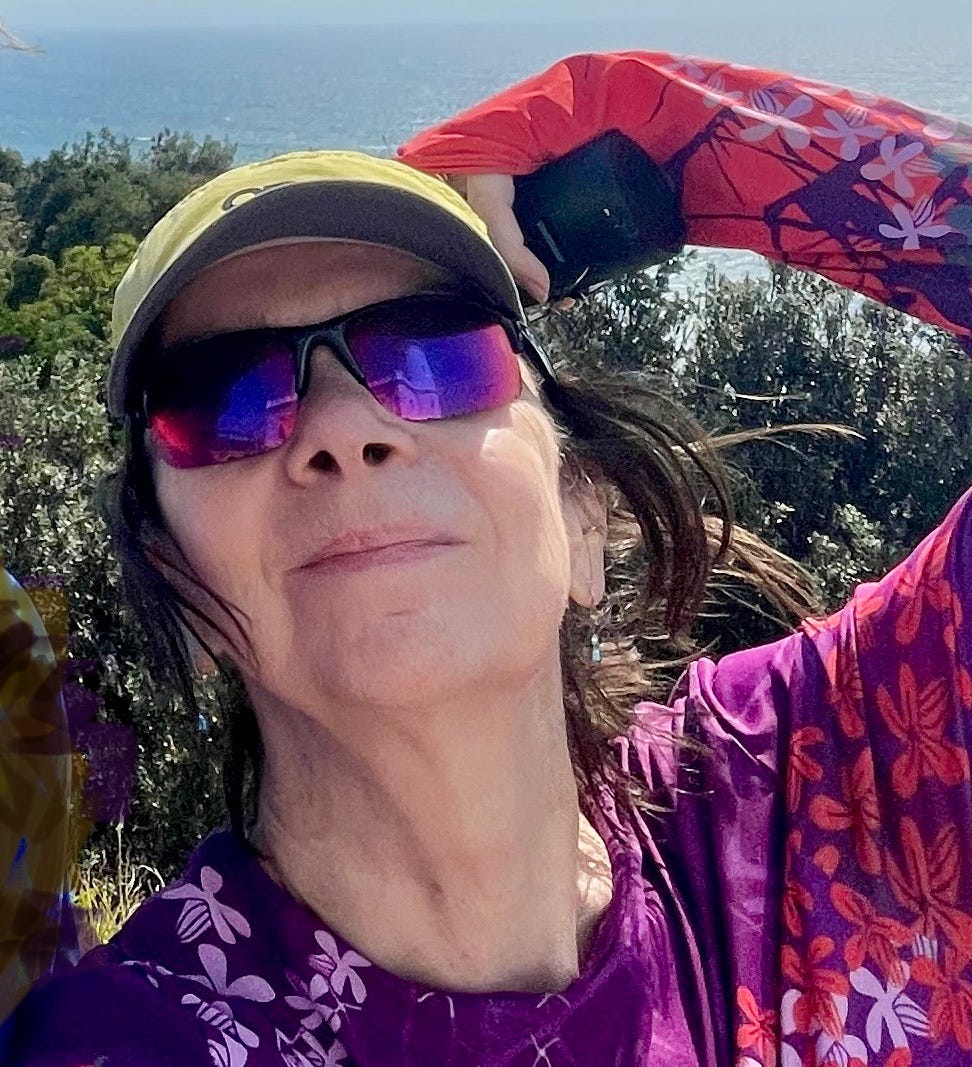Elevation + relaxation
Community scientists can help monitor the health of birds and their nests.
I used to work with a guy who traveled frequently through the Atlanta airport. Once he got back home from an exhausting work trip and couldn’t find his car in the huge parking lot. He stalked around for an hour, getting angrier and angrier, looking for his car. No luck. Finally, he forced himself to stop pacing the aisles, planted his feet to look up, to calm down. Soon, he found his car.
He told me about it later, and although all this happened three decades ago, his words about this little story have stayed with me:
"You don't feel so depressed when you look up. It’s science."
I never delved into the research then, but I'm inclined to believe in the benefits of upward gaze. Personally, I find solace in lifting my eyes, especially on clear winter days when I can study the bare branches of trees against the sky.
Recently, COVID caught up with me, but thankfully, my vaccinations provided a safety net, like some kind of soft Moderna blanket. When I ventured out to the trails after my quarantine, three days in a row I took short nature walks to lift my spirits. These walks were my perfect medicine, except when I looked up and spied trouble:
Three bird nests with plastic tangled in them, one nest each afternoon I went out.



The trash-sullied nests immediately brought to mind the interest scientists have in the issue of birds incorporating trash into their nests. I took photos and forwarded them to researchers involved in the Bird & Debris program, a community science initiative based in Scotland but open to participants worldwide.
At Birds & Debris, it is about data-gathering, information-sharing and how pollution destroys natural habitats. We hear all the time that plastic in our world is a major problem. Pollution from plastic poses threats to marine wildlife, degrades soil, contaminates groundwater, and leads to significant health risks for humans. The production of plastics exacerbates the climate crisis due to its energy-intensive production process, ranking among the most energy-demanding manufacturing processes globally. There’s much more to write here, but I’ll save it for another day. If you want more about community science efforts against pollution, read Debris Tracker: Fighting against a shrink-wrapped world.
As for the elevated gaze, even if you are not looking up for nests, maybe try it more often. Of course, don’t trip. Just look up slightly. You know how. Therapists often suggest that individuals struggling with depression maintain a confident and positive demeanor by standing tall and looking upwards. This stands in contrast to the typical slouched posture and downward gaze associated with depression. Our language reflects this dichotomy, with phrases like "feeling low" versus "feeling high." Scientifically, I now know, there is evidence supporting the idea that altering body language can influence mood, as embodied cognition suggests that our body affects our mind by calming and relaxing it. So give it a try!
The Great Backyard Bird Count: This weekend, Feb. 16-19!
Connect to Birds, to Nature, and with Each Other
Birds are everywhere, all the time, doing fascinating things. Join in the fun as the world comes together for the love of birds again this February.






